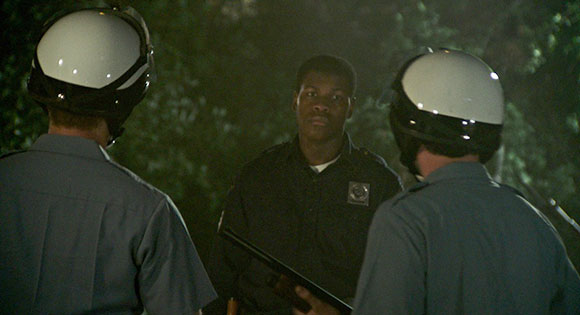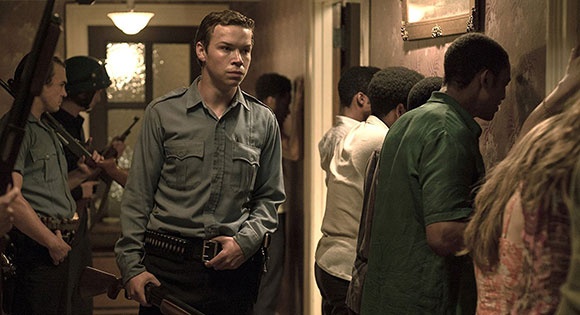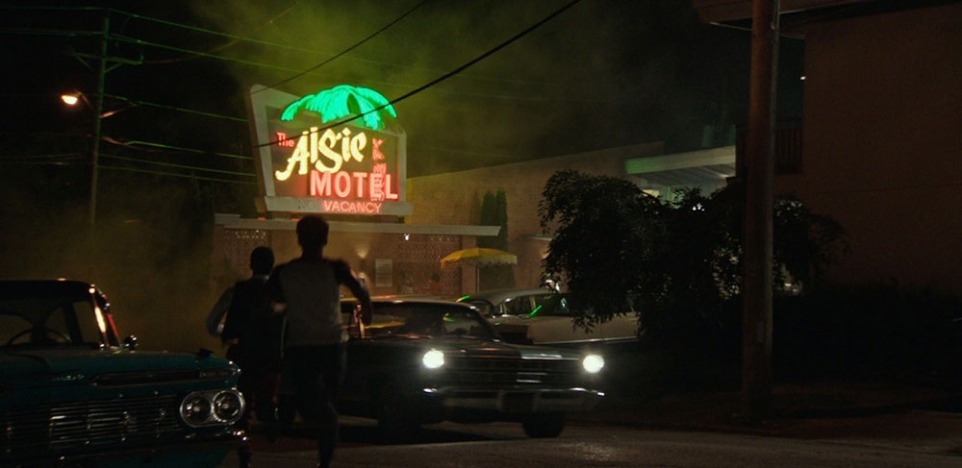"The essential American soul is hard, isolate, stoic, and a killer. It has never yet melted."
— D. H. Lawrence
More than 50 years have gone by since race riots took place in Detroit during the summer of 1967. The chaos was the result of decades of racial misery, lack of work, and white prejudice and hostility. During five days of destruction, stores were looted and cars and buildings were burned. As tensions escalated, state troopers, the National Guard, and two airborne divisions of the military arrived on the scene to the quell the violence which resulted in the arrests of more than 7,000 people and the deaths of 43 blacks.

In order to more fully understand this graphic example of racial hatred, the controversial filmmaker Kathryn Bigelow (The Hurt Locker, Zero Dark Thirty) has focused on events that took place during one night in the Algiers Motel annex. After what seems to be sniper fire from the place, police storm the building. The officer in charge, Krauss (Will Poulter), has already shot one black looter in the back and it is clear that he intends to use any and all means to learn who it was that shot at the police. He lines up black youths and two white women found with them against the walls of a hallway and unleashes a brutal mix of beatings, murder threats, and mock executions. By the time he and his fellow officers are finished, three more blacks are dead and the remaining number have been beaten and terrorized. A black security guard (John Boyega) witnesses the whole scene but later finds himself accused of committing the crimes himself.
In interviews about Detroit, film director Kathryn Bigelow has described her portrait of incidents at the Algiers Motel as "a way of honoring the tragedies of our time." When questioned about the excessive violence on screen in this drama, she replied: "There's potentially a valuable empathy that can be gleaned from the story."

Some critics have accused Bigelow of creating a work which delivers large and disgusting doses of torture porn. Others have questioned the validity of having a white person at the helm of such an important African-American story. We found the story drama both poignant and powerful – and full of sobering lessons for our own times.
Things to Take Away from the film Detroit.
- Violence is the United States' national disease.
- Prejudice is a warp of the mind in which we project our feelings of self-disgust, anger, and paranoia on others we perceive to be different.
- The demonization of black people is a major problem in American culture.
- Sexuality plays an important role in interracial strife.
- Power resides in the hands of the police officer with a gun and a badge.
- Many law enforcement officers see themselves as armies of occupation in urban war zones.
- The idea of righteous violence only divides the world into more "us vs. them" conflicts and confrontations.
- We can expect to see more protests in black and other ethnic communities when the police violate the human and civil rights of citizens.
- We need to rethink the purpose of police presences so officers are recognized not only as crime fighters but also as the protectors of our precious communities.
- The virus of racism is alive and well in police departments.
- Conversations about racism has become a kind of national therapy.
- Having empathy for oppressed peoples is good practice for opening our hearts and minds.
